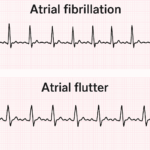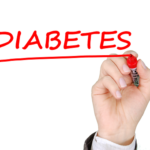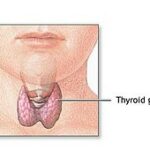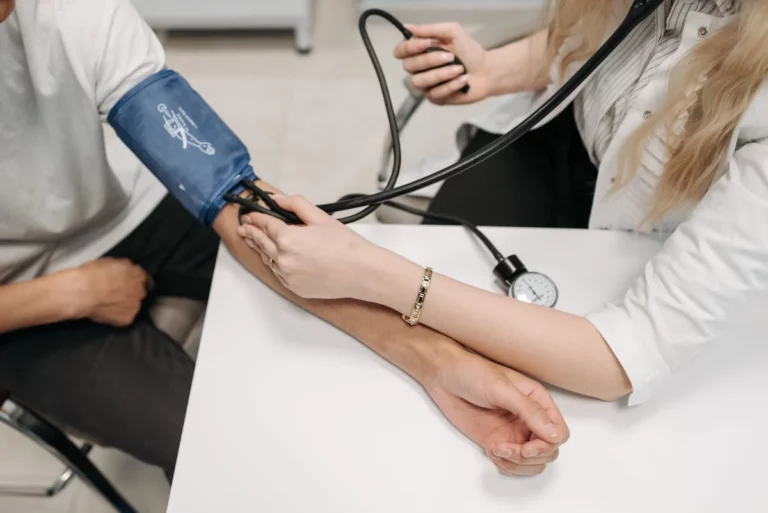Introduction
Did you know that nearly half of all adults in the United States have hypertension, yet many remain unaware? Known as the “silent killer,” hypertension, or high blood pressure, often shows no symptoms until significant health damage has occurred. It’s one of the leading risk factors for heart disease and stroke, two of the most common causes of death worldwide (American Heart Association). Managing hypertension effectively can not only prolong your life but also enhance your quality of life. There are various ways to control blood pressure, including lifestyle changes and the use of specific health supplements, like a Blood Pressure Support Supplement, to help maintain healthy levels naturally.
In this article, we’ll explore how to take control of hypertension before it’s too late, delving into essential blood pressure control tips, early warning signs, lifestyle changes, and natural remedies. By understanding these key elements, you’ll be equipped to make informed choices about managing your health proactively (World HealthOrganization).
Hypertension Prevalence and Contributing Factors by Ethnic Group in the United States
| Ethnic Group | Hypertension Prevalence (%) | Primary Contributing Factors |
|---|---|---|
| African Americans | ~55% | Higher rates of obesity and diabetes; socioeconomic factors; limited access to healthcare. |
| White Americans | ~30% | Obesity; high sodium intake; sedentary lifestyle. |
| Asian Americans | Varies by subgroup | Genetic predisposition; dietary factors; lower awareness and treatment rates. |
| Hispanic or Latino Americans | ~25% | Obesity; metabolic syndrome; socioeconomic factors. |
| Native Americans and Alaskan Natives | ~32% | Obesity; diabetes; limited access to healthcare; socioeconomic factors. |
| Native Hawaiian and Other Pacific Islanders | Varies by subgroup | Obesity; genetic predisposition; dietary factors. |
Understanding Hypertension and Normal Blood Pressure Levels to Take Control of Hypertension

Hypertension occurs when the force of blood against artery walls is consistently too high, causing strain on the heart and arteries. Blood pressure is measured in two numbers: systolic (when the heart beats) and diastolic (when the heart is at rest). A normal blood pressure reading is typically below 120/80 mm Hg. Anything above this range may indicate hypertension, putting individuals at a higher risk for cardiovascular issues. Regular monitoring is essential, as many people don’t realize they have high blood pressure until serious complications arise. Tests such as a ComprehensiveMetabolic Panel can also help detect underlying issues related to high blood pressure (Centers for Disease Control andPrevention).
Blood pressure readings can vary throughout the day, influenced by activity level, stress, and even diet. Monitoring blood pressure regularly can help individuals catch any irregularities early. Tracking daily readings also offers insights into how lifestyle factors, like diet and exercise, impact overall heart health (Harvard Health).
Types of Hypertension and Their Underlying Causes: Steps to Take Control of Hypertension
Hypertension, commonly known as high blood pressure, can be classified into two main categories: primary (essential) and secondary. A blood pressure reading of 130/80 mmHg or higher is generally considered high, while a normal blood pressure is below 120/80 mmHg.
Primary hypertension, the more common type, usually develops gradually over many years without a specific cause. It is often linked to lifestyle factors, such as poor diet, lack of physical activity, and genetic predisposition. Making adjustments to these lifestyle factors can significantly reduce the risk and severity of primary hypertension (Mayo Clinic).
Secondary hypertension, on the other hand, has a distinct cause, such as kidney disease, hormonal disorders, or side effects from certain medications. This type of hypertension tends to appear suddenly and can lead to higher blood pressure levels than primary hypertension. Treating the underlying condition often helps manage secondary hypertension, but consistent medical monitoring is essential (Johns Hopkins Medicine).
Additionally, resistant hypertension is a condition where blood pressure remains elevated despite treatment efforts. This type requires close management and may indicate other underlying health issues that need to be addressed.
| Types of Hypertension | Description |
|---|---|
| Primary Hypertension | Develops gradually due to lifestyle and genetic factors. |
| Secondary Hypertension | Results from underlying medical conditions or medications. |
| Resistant Hypertension | Stays elevated despite treatment efforts. |
Understanding the types and causes of hypertension, along with recognizing what is considered high blood pressure, is essential for taking control of hypertension. Being informed about these ranges and the underlying factors can empower individuals to make lifestyle changes or seek treatment to better manage their blood pressure.
Identifying Key Risk Factors for High Blood Pressure to Take Control of Hypertension
Several risk factors contribute to the development of hypertension, many of which relate to lifestyle choices and underlying health conditions. One of the primary contributors is a diet high in sodium, which can lead to water retention and increased blood pressure. Additionally, a lack of physical activity, obesity, and tobacco use can significantly elevate blood pressure over time. Addressing these factors through diet and exercise can be pivotal in managing and preventing hypertension (American Heart Association).
Beyond lifestyle choices, family history and certain chronic health conditions, like diabetes, can also increase the likelihood of developing hypertension. Individuals with a family history of high blood pressure may be genetically

predisposed, making it even more crucial to adopt preventive measures. Monitoring blood pressure and making healthy changes can help mitigate these inherited risks and support long-term health (World Health Organization
Recognizing Early Warning Signs and Symptoms of Hypertension to Take Control of Hypertension
Most people with high blood pressure experience no obvious symptoms, which is why it’s often called the “silent killer” (Mayo Clinic). However, when symptoms do appear, they might include persistent headaches, dizziness, or shortness of breath. In some cases, hypertension can cause nosebleeds or feelings of pulsating in the chest, neck, or ears. Recognizing these early warning signs and taking proactive steps can prevent severe health consequences (Mayo Clinic).
Since these symptoms can be subtle or mistaken for less serious issues, regular check-ups are crucial, especially if you’re at high risk. Regular blood pressure screenings allow for early detection, which can prompt timely interventions. A Comprehensive Metabolic Panel (links to Article #2) can reveal underlying health issues that may be contributing to elevated blood pressure, helping you take necessary actions (Harvard Health).
Knowing When to Consult a Doctor for Hypertension Concerns: How to Take Control of Hypertension

Consulting a doctor about hypertension is essential if you have consistent high blood pressure readings or are experiencing any concerning symptoms. A healthcare provider can help determine the severity of your condition and recommend appropriate treatments, such as lifestyle changes or medications. Persistent symptoms, such as chest pain or shortness of breath, require immediate medical attention, as they could indicate a cardiovascular event (Centers for Disease Control and Prevention).
Regular consultations and blood pressure checks are crucial, especially for those with a family history of hypertension or related conditions like heart disease. By scheduling regular check-ups, you’ll stay informed about your blood pressure levels and make timely adjustments as necessary. Routine screenings, like a (Life Line) Cardiovascular Disease & Stro…Cardiovascular Disease andStroke Screening, can reveal additional risk factors and help tailor an effective health plan (Johns Hopkins Medicine)
Exercise and Lifestyle Habits to Take Control of Hypertension
Maintaining an active lifestyle is one of the most effective ways to manage hypertension. Regular physical activity, like brisk walking, cycling, or swimming, strengthens the heart, allowing it to pump blood with less effort. The American Heart Association recommends at least 150 minutes of moderate exercise each week, which can help reduce blood pressure and improve overall cardiovascular health (American Heart Association). For additional support, a WeightLoss Supplement (e.g., Garcinia Cambogia Plus) may help those struggling with weight management, which is a key factor in blood pressure control.
Diet plays a similarly crucial role. A balanced diet that includes fresh fruits, vegetables, whole grains, and lean proteins can help maintain a healthy weight, thereby reducing strain on the cardiovascular system. Cutting back on sodium, processed foods, and alcohol intake can also improve blood pressure levels. Combined, these lifestyle changes can significantly reduce hypertension risk and promote a healthier, longer life (World Health Organization).
The Impact of Stress and Mental Health on Blood Pressure and How to Take Control of Hypertension
Chronic stress is another significant contributor to high blood pressure. When you’re stressed, your body produces hormones that temporarily increase blood pressure by causing your heart to beat faster and your blood vessels to narrow. While short-term stress is natural, prolonged stress can lead to sustained high blood pressure. Techniques like meditation, deep breathing, and yoga can help mitigate these effects and promote relaxation (Mayo Clinic).
Taking care of mental health is equally essential. Anxiety, depression, and other mental health issues can influence blood pressure. Counseling, therapy, or even stress-relief supplements like Dietary & Stress Supplement may offer valuable support. Managing mental health effectively contributes to overall well-being and helps control blood pressure more effectively (Harvard Health).
Long-Term Health Risks of Uncontrolled Hypertension and How to Take Control of Hypertension
Uncontrolled hypertension can lead to severe health complications, including artery damage, which increases the risk of stroke, heart attack, and kidney disease. High blood pressure damages the delicate blood vessels in the kidneys, impairing their ability to filter waste and regulate fluid levels effectively. Over time, this can lead to chronic kidney disease or even kidney failure, requiring dialysis or a kidney transplant. Addressing hypertension proactively helps protect kidney function and prevents these long-term consequences (American Heart Association; National KidneyFoundation).
Hypertension can also affect vision by damaging the blood vessels in the eyes, resulting in hypertensive retinopathy, which can cause symptoms like blurred vision or, in severe cases, vision loss. Additionally, high blood pressure increases the risk of other eye conditions, such as glaucoma and macular degeneration. Supplements like Lutenol(vision support) can offer additional support for maintaining eye health. Managing blood pressure through regular monitoring and lifestyle changes is essential to protect both kidney health and vision, while also reducing the risks associated with other chronic health issues like diabetes and metabolic syndrome (American Academy of Ophthalmology; World Health Organization).

Dietary and Natural Remedies for Managing Hypertension
Dietary changes are a cornerstone of hypertension management. The DASH diet, which emphasizes fruits, vegetables, whole grains, and lean proteins, is especially effective for reducing blood pressure. Limiting salt, sugar, and unhealthy fats can further support a heart-healthy diet. By focusing on nutritious foods, you’re not only lowering blood pressure but also promoting overall wellness (Centers for Disease Control and Prevention).
Natural supplements, like Blood Pressure Support Supplement, may provide added support in managing hypertension. Ingredients like potassium, magnesium, and omega-3 fatty acids are known for their blood pressure-lowering effects. However, it’s essential to consult with a healthcare provider before adding supplements to your routine to ensure they’re safe and effective (Johns Hopkins Medicine).
FAQ Section
- What is hypertension?
Hypertension, or high blood pressure, is a condition where the force of blood against the artery walls is consistently too high, increasing the risk of heart disease, stroke, and kidney failure (American HeartAssociation). - What are common symptoms of hypertension?
Often called the “silent killer,” hypertension usually has no symptoms. When symptoms do appear, they may include headaches, dizziness, and shortness of breath (Mayo Clinic). - How does hypertension impact kidney health?
Hypertension can damage the blood vessels in the kidneys, reducing their ability to filter waste. Over time, this damage can lead to chronic kidney disease and even kidney failure (National Kidney Foundation). - Can hypertension affect my vision?
Yes, high blood pressure can damage the blood vessels in the eyes, leading to hypertensive retinopathy. This condition may cause blurred vision and, in severe cases, vision loss (American Academy of Ophthalmology). - How does exercise help lower blood pressure?
Regular exercise strengthens the heart, allowing it to pump blood with less effort, which lowers blood pressure. The American Heart Association recommends at least 150 minutes of moderate exercise per week (AmericanHeart Association). - What role does diet play in managing hypertension?
A diet low in sodium, high in fruits and vegetables, and rich in whole grains can significantly reduce blood pressure. The DASH diet is specifically recommended for those with hypertension (National Heart, Lung, andBlood Institute). - Can stress management help control blood pressure?
Yes, managing stress through techniques like meditation, deep breathing, and exercise can help reduce blood pressure by relaxing blood vessels and slowing the heart rate (Mayo Clinic). - What types of hypertension exist?
Primary hypertension develops gradually over time, usually without a specific cause, while secondary hypertension is due to an underlying condition such as kidney disease or hormonal imbalance (Johns HopkinsMedicine). - How often should I check my blood pressure?
For individuals over 18, blood pressure should be checked at least once a year. Those with hypertension or risk factors may need to monitor it more frequently (World Health Organization). - Are there any natural remedies for managing hypertension?
Natural remedies, including dietary changes, exercise, and supplements like potassium, magnesium, and omega-3 fatty acids, can support blood pressure management. Always consult with a healthcare provider before starting any supplement regimen (Harvard Health).
Key Takeaway Points
- Hypertension often has no symptoms, making regular monitoring essential.
- Lifestyle changes, such as a balanced diet and regular exercise, play a crucial role in managing blood pressure.
- High blood pressure can severely impact kidney function, increasing the risk of chronic kidney disease.
- Vision can also be affected by hypertension, leading to conditions like hypertensive retinopathy.
- Managing stress is key to lowering blood pressure, as stress can constrict blood vessels and increase heart rate.
- There are natural remedies that may support blood pressure control, but they should be used with professional guidance.
- Proactive blood pressure management helps reduce risks associated with other chronic conditions, including diabetes and metabolic syndrome.
Conclusion
Taking proactive steps to control hypertension is essential for maintaining a healthier, longer life. By adopting lifestyle changes such as regular exercise, a balanced diet, stress management, and routine blood pressure monitoring, you can effectively reduce your risk of serious health complications. Hypertension not only impacts the heart but can also lead to kidney disease and vision issues, making it crucial to protect both heart and eye health. Supplements like Lutenol (vision support) can be valuable additions to your routine, providing support for eye health, which can be affected by high blood pressure. Remember, small, consistent changes in your daily habits can make a meaningful difference in managing hypertension and enhancing your overall well-being.
Nutritional Vision Support!
References
- American Heart Association. “Understanding Blood Pressure Readings.” American Heart Association, www.heart.org.
- Centers for Disease Control and Prevention. “National Diabetes Statistics Report, 2020.” CDC, 2020, www.cdc.gov/diabetes/data/statistics-report/index.html.
- Harvard Health. “10 Ways to Control High Blood Pressure Without Medication.” Harvard Health Publishing, www.health.harvard.edu.
- Johns Hopkins Medicine. “Hypertension and Related Conditions.” Johns Hopkins Medicine, www.hopkinsmedicine.org.
- Mayo Clinic. “High Blood Pressure (Hypertension).” Mayo Clinic, www.mayoclinic.org.
- National Heart, Lung, and Blood Institute. “The DASH Diet: A Healthy Diet to Lower Blood Pressure.” NHLBI, www.nhlbi.nih.gov.
- National Kidney Foundation. “Hypertension and Kidney Disease.” National Kidney Foundation, www.kidney.org.
- American Academy of Ophthalmology. “How High Blood Pressure Can Affect Your Vision.” American Academy of Ophthalmology, www.aao.org.
- World Health Organization. “Hypertension: Key Facts.” World Health Organization, www.who.int.
- American Heart Association. “Physical Activity and Blood Pressure.” American Heart Association, www.heart.org.
Craving More Health and Fitness Insight? Check Out Our Reference Archive: Must-Read Blog Articles Post!
Medical Disclaimer
The information provided on this website is for informational purposes only and should not be construed as medical advice. It is not intended to replace professional medical consultation, diagnosis, or treatment. Always seek the advice of your primary care physician, nurse practitioner, or other qualified healthcare provider with any questions you may have regarding a medical condition.
Before starting any new exercise regimen or taking supplements, particularly if you have medical conditions or are on any prescription drugs, it is essential to consult with your primary care provider. They can help you assess whether any changes are safe and appropriate for your health status.
Do not disregard professional medical advice or delay seeking it based on information from this website. Never discontinue or change any prescribed medications without first consulting your healthcare provider.
This article contains affiliate links: If you make a purchase through these links, I may earn a small commission at no additional cost to you. I only recommend products and services I trust.
Daily Inspiration
“Start where you are. Use what you have. Do what you can.” — Arthur Ashe

Marjorie DiCarlo, M.D., Ph.D., M.P.H.
🌱 More Wellness Reads 🌱
 “Empower Your Heart: Proactive Solutions for Atrial Fibrillation Management”
“Empower Your Heart: Proactive Solutions for Atrial Fibrillation Management”
 Mastering Diabetes for a Healthier Life: Essential Facts You Need to Know
Mastering Diabetes for a Healthier Life: Essential Facts You Need to Know
 The Dangerous Truth About Untreated Hyperthyroidism
The Dangerous Truth About Untreated Hyperthyroidism
 7 Early Signs of Medical Conditions You Should not Ignore
7 Early Signs of Medical Conditions You Should not Ignore
Powered by YARPP.
